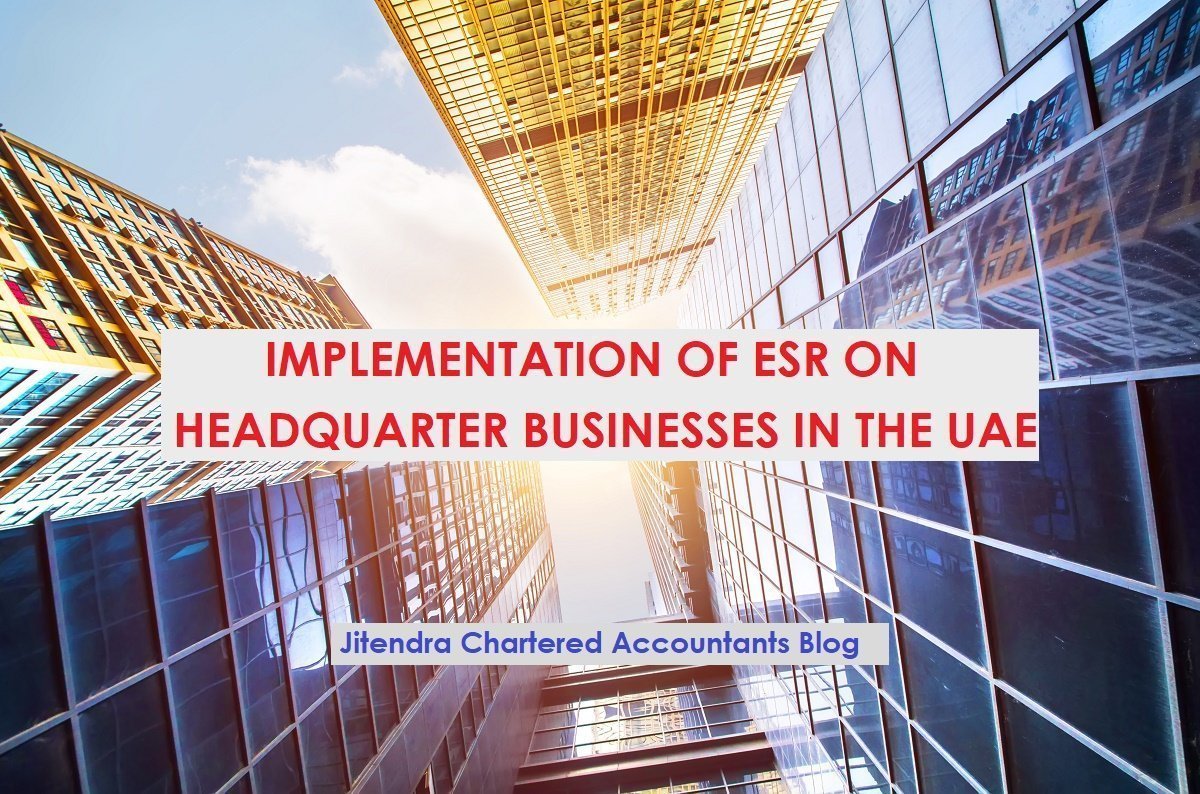The UAE introduced the Economic Substance Regulations (ESR) to curb the harmful tax practices to honour its commitment to OECD as a member of the inclusive framework and as a response to the review of UAE’s tax framework by the EU. The new regulations require the UAE companies within the scope of the regulations to submit ESR notification; demonstrate Economic Substance, and file ESR Return to the relevant mainland or free zone regulatory authority. However, the companies in the UAE have been grappling with the question of whether they come under the scope of the Economic Substance Regulations (ESR) mainly due to the lack of clarity over the relevant activities. The ESR law mandates that the companies in the UAE need to have an adequate economic substance in the UAE in relation to these 9 relevant activities, Banking Business, Insurance Business, Investment Fund Management Business, Lease-Finance Business, Headquarters Business, Shipping Business, Holding Company Business, Intellectual Property (IP) Business and Distribution and Service Centre Business.
Also read: ESR Compliance: 5 Requirements for the UAE Economic Substance Test
Since the relevant activities are the key parameter that defines whether the companies come under the scope of the UAE ESR, there needs to be an in-depth analysis of the activities, especially the Headquarters Business activity. This article focuses on how the UAE ESR applies to the headquarter business and also the Core Income Generating Activities (CIGA) that come under the headquarters business activity. Assessing the relevant activity is a process that needs to be carried out meticulously. If you are a mainland company in Dubai, UAE, or companies licensed by DAFZA, JAFZA, DIFC, RAKEZ, or any other free zones authority, consulting professional ESR service providers is recommended.
What is Headquarters Business as per the Economic Substance Regulations in UAE?
The UAE ESR Law considers a company is conducting the headquarters activity if it provides services to foreign group companies. By providing such services, the company also has to,
- Carry the responsibility of the total success of the group companies
- Be responsible for a vital aspect of the performance of the group entities
Also read: UAE Economic Substance Notification Deadline for Free Zones & Mainland Companies
Core Income Generating Activities of Headquarters Business under Economic Substance Law
A company that conducts the relevant activity is required to demonstrate economic substance and file an economic substance return for the financial period in which the company generated gross income from a relevant activity (in this case headquarters business). A key requirement for demonstrating the economic substance test in UAE is the eligible company needs to undertake the CIGAs in relation to the relevant activity. The CIGAs are those activities that are of central significance to the company for generating income from the relevant activity. The CIGAs for headquarters business are the following,
1. Taking Relevant Management Decisions
Relevant decisions pertain to the central functions and major risks related to the group companies such as material acquisitions and purchases, the group companies’ sales and marketing strategy, product development, etc.
2. Incurring Operating Expenditures on behalf of Group Entities
This activity may consist of providing specialist advice for group companies or arranging technology for the group. Purchasing important assets or services on behalf of the group firms also come under this activity.
3. Coordinating Group Activities
There are some major functions that determine the smooth operation of any company such as marketing, HR, IT, finance, tax, etc. This CIGA is about ensuring such activities are coordinated to produce the best results for the group companies.
4. Exemptions from Headquarters Business Activity
Companies that undertake Banking, Insurance, Investment Fund Management, Lease-Finance, Shipping or Distribution, and Service Centre Businesses also provide the headquarters services. However, such companies are not considered as carrying out headquarters business to avoid duplicate reporting in the UAE ESR. Such companies are also not required to demonstrate economic substance separately for UAE economic substance test.
Does a Company need to be the ‘Parent’ Company to be considered a Headquarters Business?
As per the UAE ESR, the Licensee’s position in the corporate group structure is not a deciding factor for determining whether it is carrying out the headquarter business. The Licensee, therefore, is not required to be the direct or ultimate parent of the group company for confirming it is carrying out the headquarters business. The nature of the services that the Licensee provides to the foreign company is the ultimate determinant to confirm whether it is conducting the headquarters business.
Why Choose ESR Compliance Services From Jitendra Chartered Accountants?
Ensuring UAE ESR compliance has increased the compliance pressure on the mainland and free zone companies in Dubai, UAE. The business owners have been pondering over the various provisions in the UAE ESR law that details the relevant activities to determine they come under the scope of the ESR. Many companies in mainland and free zones including DAFZA, JAFZA, DIFC, RAKEZ, etc have been facing difficulty in accurately assessing whether they are carrying out a relevant activity or not. Such companies require professional assistance and therefore require the help of reputed ESR service providers like the Jitendra Chartered Accountants (JCA). JCA has a team of highly qualified Chartered Accountants and business setup consultants who assist the companies in self-assessing whether they are carrying out the relevant activity or not. In relation to the ESR in UAE, the JCA assist the mainland and free zone companies by,
- Helping to file and submit the UAE ESR notification to the regulatory authority
- Assisting in preparing the ESR Return
- Providing recommendations to the companies if they don’t meet the Economic Substance Test


